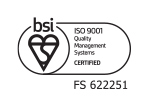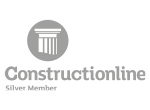Synergy News & Blog: News
Mastering Your School Building Project Budget

Managing costs on a school building project requires careful planning, monitoring, and control. Here are just a few key areas to consider:
Developing a well-considered budget at the beginning of a project is essential. It serves as the foundation for successfully driving your project forward.
The first and foremost step in defining a budget is to ensure there is a thorough understanding of the project scope and requirements. By clearly identifying the key project deliverables and timelines at the outset, you can ensure that all aspects of the project are accounted for, leading to more precise cost estimations.
Stakeholder engagement is also a crucial aspect of any initial budget planning process. Without involving key stakeholders in the initial planning stages, their later input might introduce new requirements or changes that were not initially accounted for.
It is also essential that the initial budget is based on current costs and comparable projects. Your quantity surveyor will be able to provide relevant benchmarking data which is vital in informing initial project budgets.
Realistic allowances should also be made in the initial budget for any unknowns on your project. This is also where the skills of your quantity surveyor will add significant value. They can advise you on any areas of potential risk and ensure that sensible allowances are provided in the initial budget, as well as guide you on inflation allowances and an appropriate project contingency. They will also advise you on any surveys and investigations that can be carried out to mitigate unknowns.

You’ve now sorted funding for your project and your design is finally underway!
Regular monitoring of the actual costs against the initial budget is essential during design development. Your quantity surveyor will be closely monitoring project costs and undertaking detailed elemental cost planning and regularly sharing their reports with you. They will also share this information with the project team and stakeholders, which is crucial in keeping everyone informed and to help identify any cost issues early.
To help you stay in control as the design progresses it’s important to ensure you undertake a thorough review of cost at key milestones, such as the end of each RIBA stage, to ensure that they meet your budget expectations.
It is also important to keep a close eye on scope creep as the design progresses. Additional features or changes often occur on projects during the design development stage. These requests may on the face of it seem minor, but they can impact other elements of the project. This can lead to incremental changes that accumulate over time, resulting in scope creep which can significantly impact your budget and/or timeline.
Furthermore, stakeholders can change their minds or priorities as the project progresses, necessitating design revisions and expansions to the original scope. It is important that the impact of this change on budget is fully explained to stakeholders before implementation so that budget expectations are kept in check.

It is important that value engineering is an ongoing process and not just implemented to bring an initial budget back on track.
Quantity surveyors are central to this process, bringing their expertise in cost management, risk assessment, and financial analysis to ensure that any value engineered solutions align with your project goals.
They will support you by exploring alternative solutions, such as evaluating different construction methods and materials and the advantages of phasing of works. This could include looking at the benefits of Modern Methods of Construction (MMC) such as modular solutions. It is important any alternative solutions are thoroughly reviewed to ensure that this does not detriment the project’s intended functionality or quality.
It is also important that the entire project team are engaged during any value engineering process and that recommendations are well documented and clearly communicated to the key stakeholders to support confident decision making and to safeguard project momentum.

A well-considered procurement strategy is essential for managing a budget effectively. This involves a full assessment of different procurement options to determine which one aligns best with your project’s objectives and needs. This process examines factors such as risk distribution, incentives for cost control, and the overall project requirements.
Common procurement routes can differ from each other in relation to:
- the client’s exposure to financial uncertainty
- programme timelines
- the degree of control that the client has over the design and construction processes
- the extent of design information required at the time of tender
- the information required at the time that construction work can commence
- the extent of involvement by the contractor and the supply chain in the design stage, when these parties may be able to contribute to the design and planning of the project
Your quantity surveyor will take the necessary time to understand the best strategy for your project. They will be able to evaluate all available routes, including traditional, design and build, and contract management. They’ll assist in drafting and reviewing contracts to ensure all financial and legal aspects are covered, reducing the risk of dispute.

Witnessing your project materialise on-site is highly gratifying. Nevertheless, maintaining cost control is essential to ensure the project’s success and adherence to your initial budget.
At this stage, progress can accelerate markedly, and it is imperative that you have a thorough understanding of your budget as your project evolves on-site.
It is important that your quantity surveyor provides regular, detailed financial cost reports to you and your design team.
They will also conduct regular site visits to inspect and value the work and make payment recommendations to the contractor.
As part of their formal cost reporting, they will identify all known variations, regardless of whether a formal instruction has been issued, and review all defined provisional allowances yet to be expended. This enables you and your design team to make informed decisions when unknowns arise on-site, or variations are being considered. They will also monitor actual cashflow against projections to highlight any programme issues.
Collaborative engagement among the entire project team is crucial at this stage, ensuring that monthly valuations accurately reflect the work completed to date.
Your quantity surveyor will also assist in facilitating the agreement of the final account with the parties to the building contract. Their role is to act impartially, ensuring fair payment and protecting you against overpayment or defective work.
By adopting these approaches, you can effectively manage costs and ensure the successful completion of your school building project within the allocated budget.
Synergy’s Cost Consultants support schools by offering expert advice on budget creation, cost tracking, and cost optimization strategies. Their guidance ensures that educational institutions can achieve their estate goals whilst ensuring that projects remain within the allocated budget.















